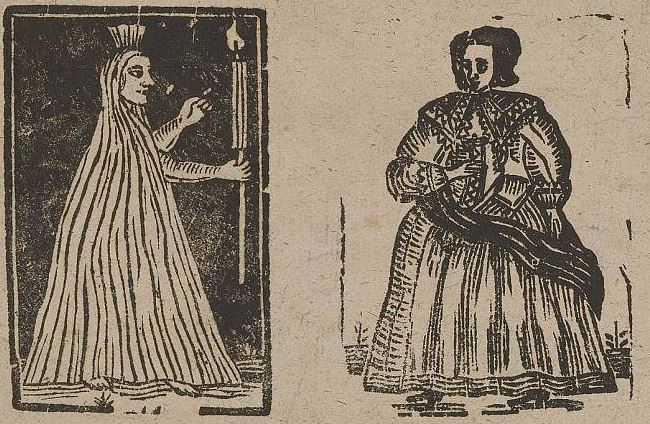Who would choose a convent over marriage? Well, meet Sor Juana Inés de la Cruz, who called herself the “worst nun in history”, built a private library in a convent in colonial Mexico, and argued with bishops, claiming that women had every right to study and learn, just as she did. Let’s talk about this controversial nun, who unapologetically chose …
Below Stairs at Christmas: A Victorian Servant Speaks
I was reading Christmas: A History, by Judith Flanders, and I came across a passage I just had to share with you. Victorian Christmas could be an incredibly elaborate affair for the upper classes, but what was it like for those who were not so lucky? How about the house servants? Well, let me read you a short passage from …
The Business of Virginity in 18th-Century London
CW: blood, sexual coercion, violence. This passage comes from the 1779 book “Nocturnal Revels, or the History of King’s-Place and Other Modern Nunneries” – and, in case it wasn’t clear, nunnery here doesn’t mean a convent full of nuns, but a brothel. Let me tell you how sex workers and madams manufactured and performed virginity over and over again, to …
The Midwife’s Ghost: A Murder Ballad from 1680
Let me tell you a ghost story. I was reading the book “The Ghost: A Cultural History”, and I was reminded of one of my favourite early modern ballads featuring a ghost. For context, ballads would usually be about current events, and tended to be very sensationalised versions of the news set to familiar melodies. There were lots of ballads …
The Censored Witches’ Flying Potion (That Promised a “Lover”)
“Rub this on your skin, get a lover.” That’s not clickbait. It’s a sixteenth-century recipe, written in all seriousness by the Italian natural philosopher Giambattista Della Porta. He recorded the formula for an ointment, said to be used by witches. The claim was that it could induce an extraordinary phenomenon: it would make the witch believe she was flying and …
Fake Virginity: The Painful Renaissance ‘Cures’ They Sold Women
CW: “Historical discussion of sexual coercion, blood & bodily harm” In Renaissance Europe, failing to bleed on your wedding night could cost a woman her dowry, her marriage – even her safety. So, of course, someone offered a solution. A 17th-century English translation of an Italian book called Magia Naturalis puts it like this: In case that wasn’t clear: the …
Before TikTok: History’s ORIGINAL Influencers
Scrolling through TikTok, Instagram, YouTube… it feels like influencers are everywhere, a thoroughly modern invention, right? But what if I told you the original influencers weren’t crafting viral videos, but commanding royal courts, dazzling high society, and shaping empires centuries ago? And the recent Met Gala? It gave us a perfect glimpse into one fascinating branch of this long history …
The Yellow Wallpaper: Behind the ‘Madness’ in the Pattern
Alone in her sick room in the late 19th century, a woman writes: What is going on? Still, she thinks: The narrator of this story is being treated by her husband, John, who is a doctor. Victorian medicine had some rather peculiar ideas about women’s mental health. Take, for instance, the notion that intellectual stimulation could damage a woman’s reproductive …
Ephelia: Unmasking a Seventeenth-Century Feminist Voice
Do you love women writers who write with humour and irony? Who criticise their society in a satirical, tongue-in-cheek way? Do you like a good literary mystery? Let me introduce you to the elusive Ephelia – yes, that’s Ephelia with an ‘E’, not Hamlet’s Ophelia with an ‘O’. Ephelia was a 17th-century poet & playwright whose identity has puzzled historians and …
Birth Trays in Renaissance Italy and Motherhood
What if a seemingly ordinary wooden tray could tell the story of a society’s rebirth after one of the deadliest epidemics in history? “In the year of our Lord 1348, there happened at Florence, the finest city in all Italy, a most terrible plague…” So starts Boccaccio’s Decameron, one of the most celebrated texts in medieval literature. The Decameron tells us much about the …











